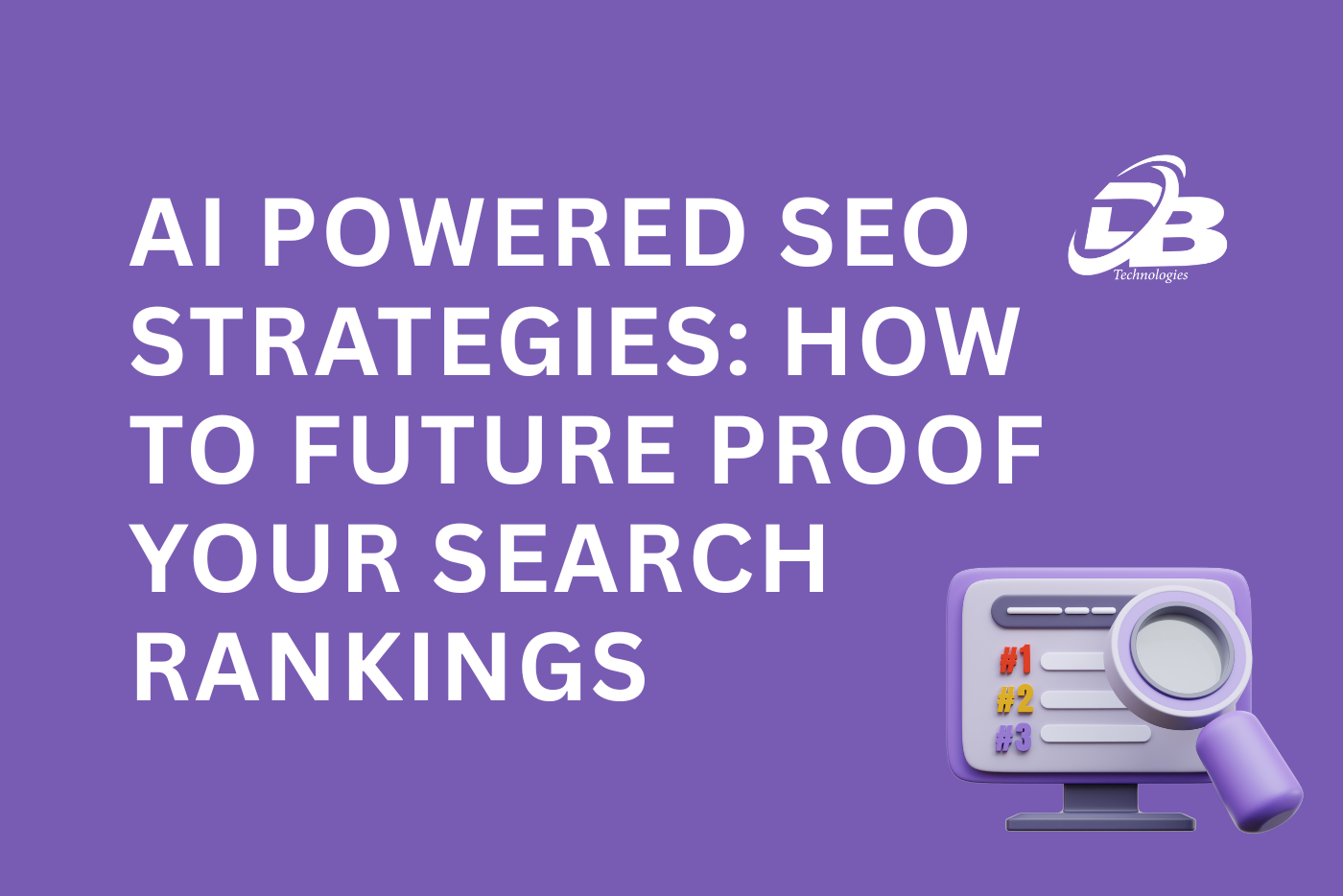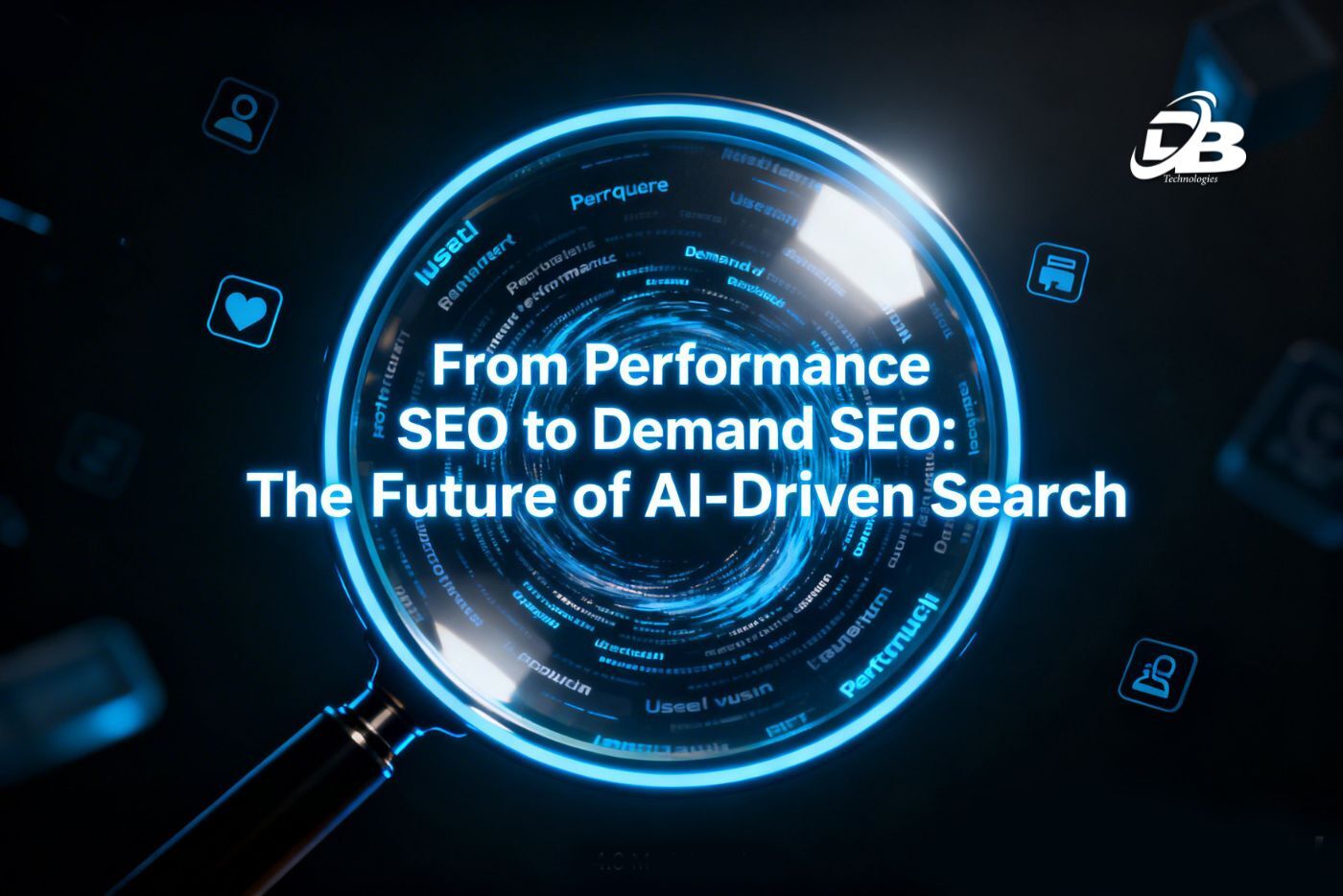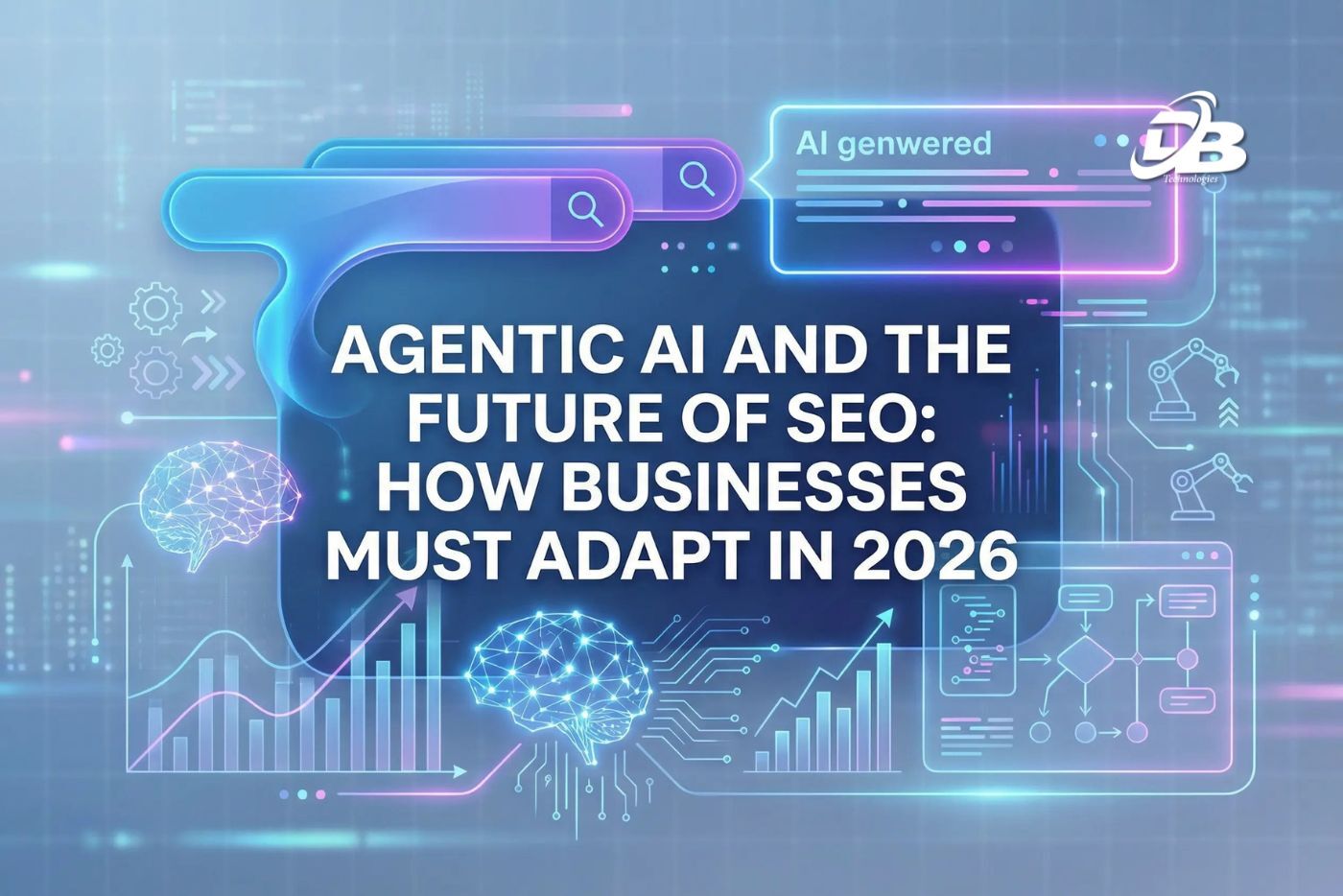
Right now AI powered SEO isn’t hype, it’s real and it’s working. The sites that are climbing the search results are already using it, not waiting for some future update.
Google’s own systems run on AI to decide what shows up where. If you want your pages to be seen, you’ve got to start playing with these tools instead of hoping old tricks will keep working.
In this blog , we’ll walk through easy, step by step tactics (with real examples) so you can future proof your rankings using AI and without getting lost in tech jargon.
For example, one study found that websites using AI driven SEO see about 30% more organic traffic on average. In fact, around 76% of SEO professionals already use AI tools in their workflow.
On the flip side, some analysts warn that ignoring AI in search could cost you dearly, potentially a 20–60% drop in traffic if you don’t adapt.
In a nutshell, AI is central, where people will reach out first to find any information.And the good news is that we will guide you to use it to your advantage.
Enhance your content with AI
AI tools can supercharge your content creation and optimization. For example, platforms like Surfer SEO and MarketMuse use machine learning to scan top ranking pages and suggest exactly what to add or fix.
They might spot content gaps , like topics your competitors cover that you don’t or recommend adding related keywords and headings to improve relevance. Mobilize Cloud explains that these AI content tools “analyze SERPs and suggest improvements for content relevancy, keyword usage, and readability”
1) Identify content gaps. Use AI tools to analyze your existing pages and see what topics or subtopics you’re missing.
2) Optimize with semantic keywords. Focus on related long tail phrases and synonyms (tools will often list them) instead of only your main keyword
3) Keep content fresh. AI can alert you to trending topics, so update old posts to reflect new search intent
Like, say you’re using one of these AI tools and it picks up that the pages showing up first for “AI powered SEO” keep talking about “future proof rankings” or even “voice search optimisation”. That’s a good hint you maybe wanna drop those phrases in your own post too
The result is smarter, more comprehensive content that readers (and AI based search engines) love.
AI Powered Keyword Research
Honestly, AI kinda flips keyword research on its head. Instead of you sitting there scratching ideas out on paper, you can jump on AI driven stuff like Ahrefs, Semrush or even ChatGPT and let it chew through huge piles of data for you.
These tools are pretty good at spotting trends before they’re hot and can dig up keywords with big potential way earlier. It’s freaky how well it sees patterns – sometimes it’ll show you what people are gonna start searching for weeks or months before everyone else even notices
1) Leverage AI keyword tools. Platforms like Ahrefs and SEMrush now have AI features that suggest high value terms and questions users are asking.
2) Target topic clusters. Focus on related topics and user intent (sometimes called entity SEO) rather than only one keyword. This means covering all aspects of a subject, which AI tools can help map out.
3) Update your strategy in real time. Regularly revisit your keyword list. AI will flag which terms are gaining traction and which are losing steam.
For example, if AI analysis shows “best AI SEO tools” is trending up, you could write a quick blog post on that topic ahead of competitors.
Or you might use ChatGPT to generate a list of question style keywords (“how does AI improve SEO?”, etc.) and then answer them on your site.
The key is to let AI point you to the most relevant phrases. One study even found that predictive AI identifies seasonal and trending keywords 3× faster than traditional methods so you’ll always be working with the latest data.
Structure for Featured Snippets & Voice Search
More searches now happen by voice or in AI snippets. To capture these, format your content to answer questions directly. That means writing clear, concise answers and using structured data so AI can easily pull your content.
As one analyst advises, “structure your content with clear, concise answers to common questions” and use schema markup to help search engines and AI assistants understand it.
In other words, think FAQ style.
1) Write answer style content. Use short paragraphs or bullet points to directly answer likely questions about your topic.
2) Use schema markup. Add FAQ, Q&A, or How To schema so Google’s AI knows what parts of your page directly answer a question.
3) Be conversational. Phrase content the way people speak: full questions and short replies, just like in a voice search query.
Imagine someone asking Siri or Google Home a question about your topic. You want your site to be the response. For example, if you write a post on “AI SEO tools,” include a Q&A section like “What is the best AI tool for SEO?” followed by a crisp answer.
Because over 500 million searches per day are voice queries, structuring content this way can dramatically increase your exposure (even if users don’t click, they see you as the answer).
High quality, conversational content helps capture voice search and featured snippet traffic.
Automate Technical SEO Audits
AI isn’t just for content , it can power your technical SEO too. Use AI driven site crawlers and audit tools to find and fix problems quickly. In the past, a manual SEO audit could take days.
Now, AI crawlers can scan your entire site in minutes. They’ll flag issues like broken links, duplicate titles, slow pages, or missing meta tags.
1) Run regular AI audits. Schedule AI powered scans to catch issues early. Tools can automate this so you don’t have to remember.
2) Optimize based on AI insights. If the AI report shows a bunch of slow pages, focus on speeding those up. If it highlights crawl errors, fix them immediately.
3) Maintain site health. The less techy errors sitting around, the easier it is for search engines to crawl and index your pages properly. If you set up some automatic checks to catch stuff, you’re basically working smarter not harder
For example, if an AI tool warns you that mobile pages are slow, you can compress images or improve server response. This keeps Googlebot happy and can boost rankings.
Remember, search engines consider page speed and mobile friendliness as ranking factors, so AI based fixes here directly future proof your site.
Personalization & Local SEO
Search engines now hyper personalize results based on user context. AI lets you do the same. For local SEO, create dedicated content for each city or neighborhood you serve, and weave in location specific keywords.
Another reputed site suggests things like “creating city or neighborhood specific landing pages” and including locally relevant phrases (e.g. “Best SEO agency in Dubai” ) You should also use AI tools to manage local listings, for example, automatic replies to Google Business Profile reviews keeps engagement up.
1) Local landing pages. If you serve multiple areas, have an AI generated copy variant for each location
2) Local keywords. Sprinkle the name of your city/area in titles and content so you rank for local searches
3) Personalized content. Use AI to deliver content variations. For instance, show different testimonials or offers to users from different regions.
AI can also tailor user experiences. For instance, dynamic content can change based on a visitor’s previous behavior or interests. If a user often reads mobile design articles, an AI tool could prioritize that content for them on their next visit.
Essentially, one size fits all is old news, AI lets you make your SEO strategy as unique as each visitor. This approach is especially powerful for local businesses.
Blend AI with Human Expertise
At the end of the day AI’s just a tool, it can’t swap out your real know how. You can totally let it spit out a draft or an outline for you, but you’ve still gotta pour in your own experience, so it actually feels real. As one expert puts it, “AI isn’t making SEO obsolete , it’s making it smarter”
Human creativity, strategy, and understanding of your audience still define success. In fact, industry data shows 72% of marketers manually edit AI generated content before publishing, they trust AI for the heavy lifting, but do the final polish.
1) Let AI churn out a rough draft, then edit it properly.
2) Check any facts or statistics AI provides. Add your unique examples, case studies, or brand story that AI wouldn’t know.
3) AI can pump out content fast, but pair that speed with careful review to keep quality high
In short, treat AI like a really smart assistant. It can analyze data, suggest topics, or draft prose, but humans must guide the vision. Combining both yields the best results, fast research and production plus the emotional intelligence that connects with readers.
Remember AI can draft or analyze content , but human insight remains vital for storytelling and strategy.
Monitor and Measure in the AI Era
Old SEO numbers like clicks and CTR don’t show the whole picture anymore. With all the AI driven search things, voice answers, featured snippets, those new AI overviews, people might get what they need without even clicking through to your site.
One of the famous digital marketing Journals warns that “traditional metrics aren’t telling the whole story anymore” in the AI era. Instead, focus on new signs of impact:
1) Featured snippet and AI answer inclusion. Track when your content is picked up by Google’s AI summaries or knowledge panels. Those placements won’t show as clicks, but they boost awareness.
2) Brand mentions and direct searches. AI tools often prompt users to search the brand name later. If you see more users Googling your company after an AI answer, that’s a success.
3) Engagement metrics. Monitor things like how long people stay on your pages, how fast they leave, and whether they actually sign up or buy. When AI is bringing the right visitors, they should stick around and take action, even if they got to your site in a slightly unusual way.
For example,if your Frequently asked question (FAQ )page is read aloud by a voice assistant, the user might remember your brand and visit later.
That indirect effect matters. As Search Engine Journal puts it, content in the AI age is still “influencing decisions, building brand awareness, and driving conversions”, even if “visibility doesn’t always equal clicks.
In practice, set up custom tracking (UTMs, alerts, etc.) whenever AI references your content. Then correlate that to things like sign ups or brand search spikes. This way, you prove that your AI powered SEO work is paying off, even behind the scenes.
If you have reached this point of this well researched blog , then you will also love this blog, titled as “How Generative AI is Reshaping SEO Careers.”
Future Proofing Your Strategy
Finally, try to stay flexible and a bit ahead of the game. Google’s AI and all the other ones will keep changing, so don’t burn energy chasing every little shift. Focus on the big stuff instead.
Make sure your brand name’s simple, keep your main content fresh because AI likes up to date info. And work on getting real mentions and links from trusted sites, that shows the algorithms you’re legit.
The bottom line is, mix quality with consistency. Put out real value , solid info, your own research, a good user experience and let AI help you fine tune how it’s delivered. Stick with it and, over time, these AI powered SEO strategies will keep your rankings up there.
For example, one case study showed that a site whose owners embraced AI tools (with human editing) doubled its organic traffic in months. Another saw 30% more search driven revenue after implementing AI backed keyword and content updates. Success will follow when humans collaborate with AI.
Wrapping up
AI powered SEO strategies give you a clear path to future proof your search presence. Use them to adapt faster than algorithms change.
In summary, use AI tools to spot content gaps and trending keywords, then write in a natural, helpful way while covering whole topic clusters. Let AI handle quick technical audits and help you personalize pages for different regions or user intents. But always review what the tech produces , add your own expertise, voice and trust factors.
Don’t just look at clicks anymore; and monitor how your content shows up in snippets.Following these simple steps will keep you ahead of the game.
As one SEO firm notes, AI and advanced tools are “the path to sustainable growth”
In other words, blending smart technology with solid SEO fundamentals is how you dominate search in the long run. Start small (even a few changes help), and build up your AI driven processes over time. That way, when search engines evolve, your rankings won’t take the hit, they’ll stay strong or even improve, keeping you ahead of competitors.












